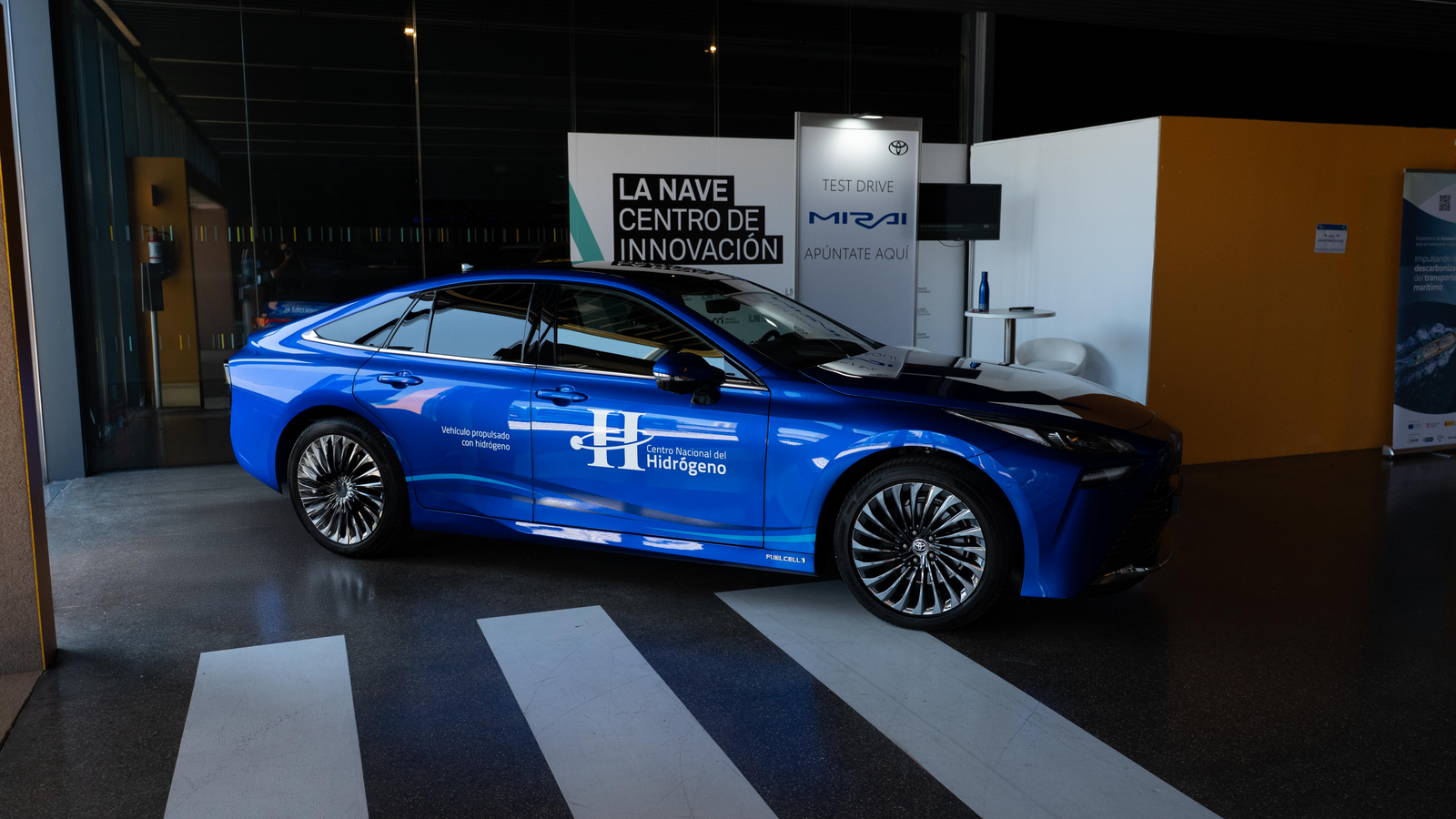Hydrogen cars, an unknown proposition in Europe
We analyze what fuel cell vehicles or hydrogen cars are, how they work, and what advantages they have.

There is a certain social consensus, both in Europe and the United States, that the future of mobility lies in the electrification of cars, motorcycles, scooters, and bicycles. But for some time now, there has been a race in Korea and Japan to build an alternative to electric cars. Hyundai and Toyota, two global giants of the industry, have models that run on hydrogen fuel (the Hyundai Nexo and Toyota Mirai) and continue to advance in this relatively unknown field of innovation in Europe.
What is a hydrogen car?
A hydrogen fuel cell car, or hydrogen car, is a vehicle that uses hydrogen as fuel to power the wheels and move it. Its operation is relatively simple: it's actually an electric car that, instead of powering the engine with energy stored in batteries, uses the central fuel cell, a kind of power plant that harnesses hydrogen and supplies the electric motor with the energy needed to move the car.
Fuel cell vehicles store hydrogen in tanks or reservoirs that channel the hydrogen to the central fuel cell, where it comes into contact with oxygen in the air to produce electricity. The electricity obtained in this process powers the electric motor, while the resulting wastewater (water vapor) is expelled from the vehicle's interior through an exhaust pipe.
Three advantages of hydrogen vehicles
Fuel cell vehicles offer a significant comparative advantage over conventional electric vehicles with lithium batteries in three key ways. First, a fuel cell vehicle's hydrogen can be charged in just a few minutes, just as it would be with a gasoline or diesel vehicle, instead of having to wait hours to charge the lithium batteries, even when using fast-charging systems.
Secondly, it's worth noting that fuel-cell or hydrogen-powered cars don't need the large lithium batteries that conventional electric vehicles must use. Lithium is an expensive commodity that generates significant environmental impact and geopolitical tensions between countries over global supply control. Being able to do without this element allows for the defusing of some potential sources of tension in Africa, Latin America, China, and Russia.
The final major advantage of fuel cell vehicles is their real-world range, which exceeds that of conventional electric vehicles with lithium batteries. Unlike these vehicles, their performance and range are not affected by environmental factors (heat or cold).
Two (big) drawbacks
Hydrogen has a major problem that currently means it's not considered a realistic option for the future in Europe. It's an element that cannot be extracted directly from nature, and to obtain it in a neutral and sustainable way, an electrolysis process is required, which consists of obtaining hydrogen from water. This requires the use of electricity, which, while it can be obtained from renewable energies such as solar or wind, still significantly increases the cost of the production process, making the final product insufficiently commercially competitive. The other option for obtaining hydrogen on a large scale and at a lower cost is from a fossil fuel such as natural gas, but this option does not provide any environmentally sustainable solution.
The great challenge is to find a formula capable of producing green hydrogen—that is, hydrogen from an electrolysis process using solar or wind energy—at a reasonable price. According to some studies by the International Energy Agency, it will be feasible to market a kilo of hydrogen at a stable price of around €2 or €2.50 within a period of about ten to fifteen years. Considering that each kilo of hydrogen provides enough energy to travel about 120 kilometers and that fuel cell car tanks have a capacity of about five kilos of fuel, it is feasible to think that in the not-too-distant future, it will be possible to travel about 600 kilometers (the distance between Barcelona and Madrid, for the record) at a cost of about €1.
The challenge of fuel cell vehicles divides the automotive industry. Thus, while Asian manufacturers Toyota and Hyundai have been investing in this technology for years, some European brands like BMW are just beginning to explore its potential with pioneering prototypes and commercial models, while other traditional manufacturers like Volkswagen and Ford prefer lithium.
